SUMMARY
This is AI generated summarization, which may have errors. For context, always refer to the full article.
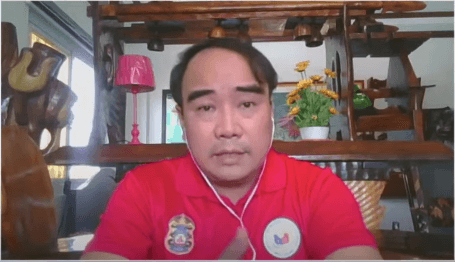
MANILA, Philippines – The Executive Director of the Presidential Task Force for Media Security (PTFoMS) expressed doubt that the recent killing of journalist Jesus “Jess” Malabanan in Samar is work-related as he supposedly “wrote only feel-good stories.”
PTFoMS executive director Joel Egco, an undersecretary at the Presidential Communications Operations Office (PCOO), said this in a Laging Handa briefing on Saturday, December 10, when asked about the mandate of his task force. In his response, he addressed the slay case of Malabanan and noted that a “Nobel Peace Prize awardee” – apparently referring to Rappler CEO Maria Ressa – even mentioned the case in her Nobel lecture.
After saying that the task force is closely monitoring Malabanan’s case, Egco said: “I’m sure people are asking: ‘Ano ba ang motibo? Pinatay ba siya dahil siya ay media man ‘no?’ Katulad nito, nabanggit pa nga noong isang awardee ng Nobel Peace Prize iyong kaso ni Malabanan – parang pinagmamalaki pa na ‘di ba, na dito ay pinapatay – aba’y hindi po ganoon ang sitwasyon ‘no.”
(I’m sure people are asking: ‘What is the motive? Was he killed because he’s a media man?’ Like in this case, one awardee of the Nobel Peace Prize even mentioned the case of Malabanan, as if boasting that he was killed here – but that is not the situation.)
In the first part of her lecture, Ressa mentioned the cases of journalists around the world who had been killed or jailed, among them Malabanan who “was killed with a bullet to his head.” (FULL TEXT: Maria Ressa’s speech at Nobel Peace Prize awarding)
Egco said the public should keep in mind that most journalists are killed due to personal reasons or other conflicts not related to their profession.
“So don’t believe in the propaganda that journalists are really being directly targeted here for being journalists…. There’s an ocean of reasons,” he said.
‘Friendly guy’
Egco said that the PTFoMS was probing Malabanan’s case, and that based on his exchange with his co-workers at the Manila Standard, he was told that Malabanan “only wrote feel-good stories.”
However, according to veteran journalist Manny Mogato, Malabanan helped Reuters in its coverage of Duterte’s drug war that won Reuters journalists, including Mogato, a Pulitzer in 2018. “Reuters helped him hide for months in Samar when he was threatened in San Fernando, Pampanga,” Mogato said.
Egco, too, said on Saturday that Malabanan asked for the PTFoMS’ help in 2018, for the same reason, and that the task force helped him.
The Manila Standard ran an editorial on Malabanan’s killing on December 10, titled “Beyond condemnation,” that called attention to the prevailing climate of impunity in the country that had fostered such an attack and to the “environment that emboldens [perpetrators and masterminds] to silence media workers just because they do not like what is being written about them.”

‘Breakthrough’
Egco said Malabanan wanted to retire and return to Calbayog, Samar, to venture into farming, and that the task force was looking into this angle as well.
“And in fact gusto na niyang…mag-retire dito at umuwi sa Samar dahil gusto na po niyang mag-farming. So isa po ‘yun sa tinitingnan natin, itong kanyang panibagong career wika nga ‘no. Sinisilip po natin ‘yan – iyong mga usaping lupa – baka may nakaaway siya roon at doon po tayo nakasentro ngayon, doon sa lugar kung saan siya pinaslang. Dahil dito po sa Luzon kung saan siya nagtatrabaho, nakabase po siya sa Pampanga, wala po kaming makitang kaaway niya rito dahil napakabait po niyan, napakamapagkaibigan kaya tumututok po tayo sa Samar,” he said.
(In fact, he wanted to retire and go home to Samar because he wanted to go into farming. So that’s one of the things we’re looking into, his new career, so to speak. We’re looking into that – discussions related to land – he might have had an argument with someone there and we are focused on that now, in the place where he was killed. Because here in Luzon where he worked, he was based in Pampanga, he didn’t have any enemies here because he’s such a kind man, very friendly, so we’re focusing on Samar.)
Egco said he will have a case conference with investigators in Calbayog on Monday, December 13, so that he could be apprised of the “positive developments” in the case, which he declined to divulge.
“Ako po’y umaasa na sooner or later, hopefully by next week, magkaroon po ng breakthrough dito ‘no. Naniniwala po ako personally na nandoon lang po iyon sa paligid, ang kanyang kaaway (I’m hoping that sooner or later, hopefully by next week, there will be a breakthrough. I personally believe that his enemy is there [in Samar]),” Egco said.
‘Improved’ PH ranking in CPJ’s impunity index
In a recent report from New York City-based media watchdog Committee to Protect Journalists (CPJ), the Philippines was found to remain as one of the deadliest countries for journalists. It retained its 7th place ranking from a year earlier.
Egco said that, despite the finding, 7th place was still an improvement from previous years, citing the creation of the media security task force as a reason. He said that most of the Philippines’ 13 unresolved cases in the CPJ’s Global Impunity Index were already being tackled in court.
CPJ had called Egco out in 2020 for “prematurely” claiming the end to impunity of journalist killings.
Journalists’ groups have called out Duterte early in his administration for issuing statements that justified media killings. In 2016, Duterte said, “Just because you’re a journalist, you are not exempted from assassination, if you’re a son of a bitch.”
Ressa has been a target of attacks and harassment for her media organization’s critical coverage of the Duterte administration. She was convicted of cyber libel in 2020 – a move rights groups have called politically motivated.
When Malacañang congratulated Ressa’s Nobel win after days of silence, it also denied, in almost the same breath, that the free press in the country was under attack.
Meanwhile, opposition leader Vice President Leni Robredo thinks otherwise – saying Ressa won the Nobel in her pursuit of truth in the “face of harassment and abuse, and an entire ecosystem built to strip it of its power.”
In her December 10 speech delivered in Oslo, Norway, Ressa said that she only represented journalists all over the world who were facing persecution from their governments. She also called for a massive global reform of the information ecosystem, which allowed lies and hate to spread faster than facts. – Rappler.com
Add a comment
How does this make you feel?

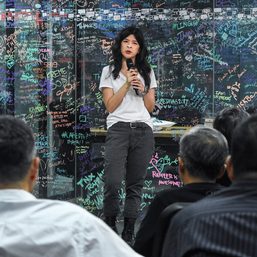

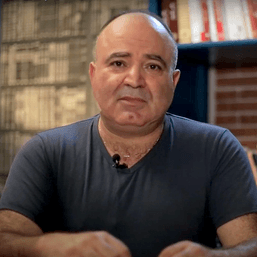





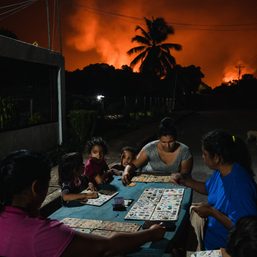
![[Newsstand] The media is not the press](https://www.rappler.com/tachyon/2024/04/tl-media-is-not-the-press-04132024.jpg?resize=257%2C257&crop=281px%2C0px%2C720px%2C720px)
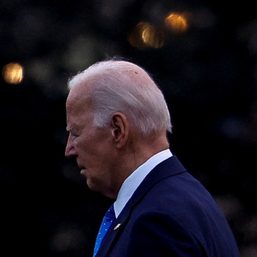
There are no comments yet. Add your comment to start the conversation.